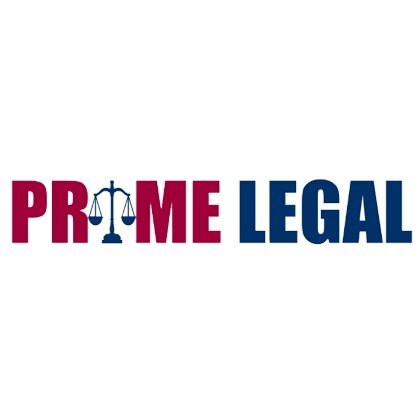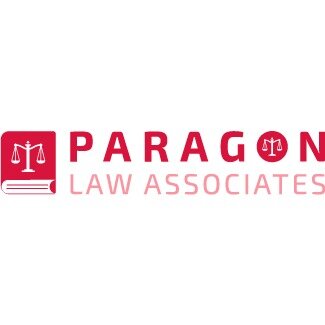Best Permanent Residency Lawyers in Nepal
Share your needs with us, get contacted by law firms.
Free. Takes 2 min.
Or refine your search by selecting a city:
List of the best lawyers in Nepal
About Permanent Residency Law in Nepal
Permanent Residency (PR) in Nepal is a legal status that allows foreign nationals to live and work in the country indefinitely. This status is granted by the Department of Immigration under the provisions of the Immigration Act. Holders of Permanent Residency in Nepal gain significant benefits, such as the ability to own property, work, and access services akin to Nepalese citizens. However, they do not gain rights like voting in elections. The PR framework aims to attract skilled investors and professionals to contribute to the nation's development.
Why You May Need a Lawyer
Navigating the legal processes surrounding Permanent Residency can be complex. Having a lawyer may be beneficial in several situations, such as:
- Interpreting the specific requirements and eligibility criteria for PR.
- Assisting with the preparation and submission of accurate documentation.
- Handling any legal disputes or issues that may arise during the application and approval process.
- Providing guidance on maintaining PR status and understanding rights and obligations under Nepali law.
- Advising on tax implications and other legal matters associated with PR status.
Local Laws Overview
Permanent Residency in Nepal is governed primarily by the Immigration Act and its regulations. Key aspects include:
- Eligibility Criteria: This includes provisions for investors, professionals, and those with Nepalese heritage. Specific investment amounts or qualifications may be required.
- Application Process: Applicants must submit an application to the Department of Immigration, which involves thorough background checks and fulfilling all documentation requirements.
- Rights and Limitations: PR holders enjoy several privileges but are subject to legal obligations such as tax liabilities, without political rights like voting.
- Renewal and Maintenance: PR status must be maintained through compliance with local laws, including residency requirements and periodic renewals.
Frequently Asked Questions
What are the eligibility criteria for obtaining Permanent Residency in Nepal?
Eligibility for PR typically includes investors meeting specific financial thresholds, skilled professionals contributing to the economy, and individuals with familial ties to Nepal.
How long does the Permanent Residency process take?
The process duration can vary, but generally, it includes multiple stages and can take several months from application to approval.
Is there a minimum investment requirement for investors seeking PR?
Yes, foreign investors must meet a minimum investment requirement, which is detailed in the relevant regulations and can change periodically.
Can Permanent Residency be revoked?
Yes, PR in Nepal can be revoked if the holder violates terms, such as engaging in illegal activities or failing to comply with residency requirements.
Do Permanent Residents have to pay taxes in Nepal?
PR holders must comply with Nepal’s tax laws, which may require them to pay taxes on income earned in Nepal and potentially elsewhere, depending on domestically applicable laws.
Are PR holders eligible for citizenship?
Permanent Residency does not automatically lead to citizenship. Separate legal processes and criteria must be met to apply for Nepali citizenship.
Can family members of a PR holder also obtain PR?
Dependents such as spouses and minor children may apply for PR, but they must comply with specific application procedures and requirements.
What obligations do PR holders have in Nepal?
PR holders are required to abide by all relevant laws, including maintaining an up-to-date PR status and renewing it as required by law.
How can one renew their Permanent Residency status?
Renewal involves submitting a renewal application to the Department of Immigration, meeting residency obligations and fulfilling documentation requirements.
Can PR holders own property in Nepal?
Yes, PR holders are allowed to purchase property in Nepal, subject to local regulations on land ownership.
Additional Resources
Several resources can assist individuals seeking information or legal advice on Permanent Residency in Nepal:
- Department of Immigration (Nepal): Offers authoritative information and guidance for PR applications.
- Nepal Bar Association: Can help connect individuals to qualified legal professionals specializing in immigration law.
- The Nepalese Ministry of Law and Justice: Provides access to legal documents, acts, and amendments relevant to PR.
Next Steps
If you require legal assistance regarding Permanent Residency in Nepal:
- Research and contact a lawyer specializing in immigration and residency issues in Nepal.
- Prepare all your personal documentation and be transparent about your circumstances to receive tailored advice.
- Schedule a consultation to discuss your situation, including eligibility concerns, application procedures, and potential legal challenges.
- Carefully follow the guidance provided by your lawyer to ensure compliance with all legal requirements and to improve the likelihood of a successful application.
By taking these steps and seeking appropriate legal counsel, you can navigate the PR process in Nepal more effectively.
Lawzana helps you find the best lawyers and law firms in Nepal through a curated and pre-screened list of qualified legal professionals. Our platform offers rankings and detailed profiles of attorneys and law firms, allowing you to compare based on practice areas, including Permanent Residency, experience, and client feedback.
Each profile includes a description of the firm's areas of practice, client reviews, team members and partners, year of establishment, spoken languages, office locations, contact information, social media presence, and any published articles or resources. Most firms on our platform speak English and are experienced in both local and international legal matters.
Get a quote from top-rated law firms in Nepal — quickly, securely, and without unnecessary hassle.
Disclaimer:
The information provided on this page is for general informational purposes only and does not constitute legal advice. While we strive to ensure the accuracy and relevance of the content, legal information may change over time, and interpretations of the law can vary. You should always consult with a qualified legal professional for advice specific to your situation.
We disclaim all liability for actions taken or not taken based on the content of this page. If you believe any information is incorrect or outdated, please contact us, and we will review and update it where appropriate.
Browse permanent residency law firms by city in Nepal
Refine your search by selecting a city.














